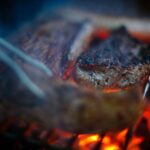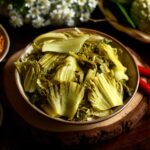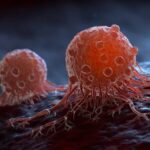Daily dietary habits not only influence our figure but also directly impact our risk of developing chronic diseases, especially cancer. According to the latest medical research, some familiar flavors in our meals unintentionally become ideal “fuel” for cancer cells. Worryingly, many Vietnamese people are consuming these flavors daily without realizing they are “abetting” cancer’s growth.
1. The greasy taste of fatty foods: Inflammation and abnormal cell activators
Deep-fried dishes such as grilled pork belly, French fries, and crispy fried chicken are always appealing to both children and adults. However, according to a disclosure by the Chinese Medical Research Institute in May 2024, a diet rich in saturated fat not only causes metabolic disorders but also weakens the immune system, creating ideal conditions for cancer cells to thrive silently.
A high-fat diet alters the gut microbiota, causing the body to release amino acids that stimulate immune-suppressing T cells. This response reduces the ability to destroy mutated cells. Over time, this becomes the trigger for chronic inflammation and tumor formation.
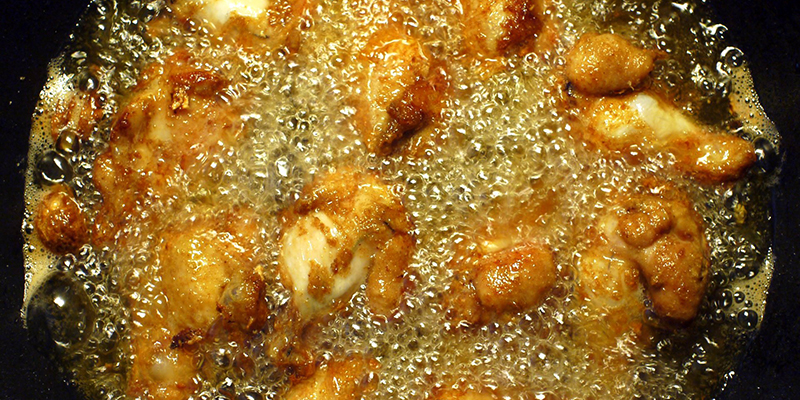
Dr. Yang Hao, a Shanghai-based nutritionist, advises that individuals should consume a maximum of 25g of fat per day. Instead of fried foods, prioritize cooking methods such as steaming, boiling, and stewing to protect the gut and minimize the risk of toxin accumulation.
2. The intense sweetness of refined sugar: A “catalyst” for breast, liver, and pancreatic cancer
Sugar, especially refined sugars found in candies, sugary sodas, and milk teas, is becoming a “close companion” to cancer cells. Epidemiological studies in the US and Europe have repeatedly confirmed that high sugar consumption is closely associated with increased rates of breast, liver, and pancreatic cancer.
Specifically, a study published in Current Developments in Nutrition (2022) found that women who drank more than one sugary drink per day had a 78% higher risk of developing liver cancer than non-consumers. Sugar not only increases the risk of insulin resistance, a cause of diabetes, but it also promotes inflammation and hormonal imbalances, thereby nourishing differentiated cells.
A cup of milk tea or a can of soda may seem harmless, but they contain 30-50g of sugar, far exceeding the World Health Organization’s (WHO) recommendation of no more than 25g of sugar per day.
3. The salty taste of salt and pickled foods: The silent stomach destroyer
While greasy and sweet flavors are often favored by young people, salty flavors are integral to the traditional meals of many Vietnamese families. From salted fish and meat stewed in fish sauce to pickled vegetables, these familiar dishes are now being warned as the leading cause of stomach cancer.
According to the “Guidelines for the Prevention of Gastrointestinal Cancer” issued by the Chinese Cancer Association in 2023, a high-salt diet can damage the stomach lining, creating favorable conditions for the growth of Helicobacter pylori bacteria, which is directly related to the risk of stomach tumor formation.
A synthesis of 26 international studies also showed that people who consumed more salt had a 25% higher risk of stomach cancer than those who ate less salt. Particularly, Asians, who have a habit of eating salty foods, are the most vulnerable group.
WHO recommends that salt intake should not exceed 5g per day, equivalent to one teaspoon. However, surveys in Vietnam show that the average consumption is often double or even triple this amount.
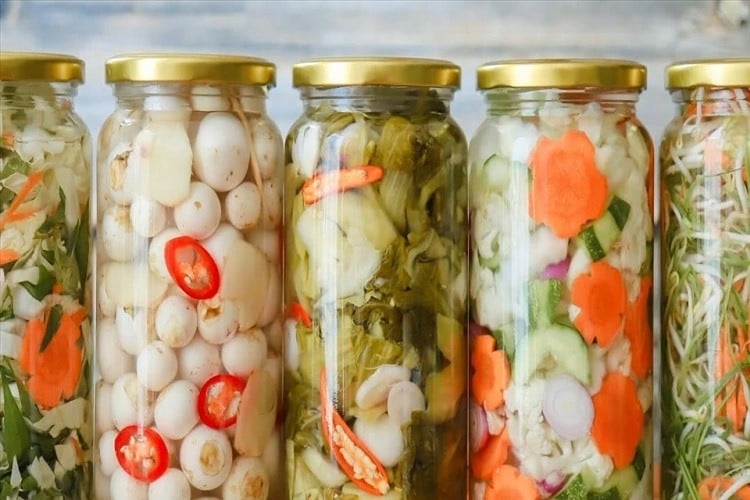
Healthy Eating to Prevent Cancer: Golden Rules to Remember
- Increase your intake of green vegetables and fresh fruits: At least 400g/day to provide antioxidants and fiber.
- Choose foods rich in unsaturated fats: Such as salmon, avocado, and olive oil to help fight inflammation and protect cells.
- Add healthy protein: From white meat, soybeans, eggs, and low-fat dairy instead of processed meats.
- Limit grilled, fried, and smoked foods: These are sources of carcinogenic compounds such as acrylamide and nitrosamine.
- Drink green tea daily: Polyphenols in tea inhibit cell mutation.
- Control your intake of salt, sugar, and cooking oil: The closer you get to WHO recommendations, the lower your risk.
Not everyone can completely prevent cancer, but controlling your diet is an effective way to reduce the risk early on. Recognizing and reducing the intake of these three “delicious” flavors for cancer cells—greasy, intense sweetness, and salty—is an important step towards long-term health protection for yourself and your loved ones.

























